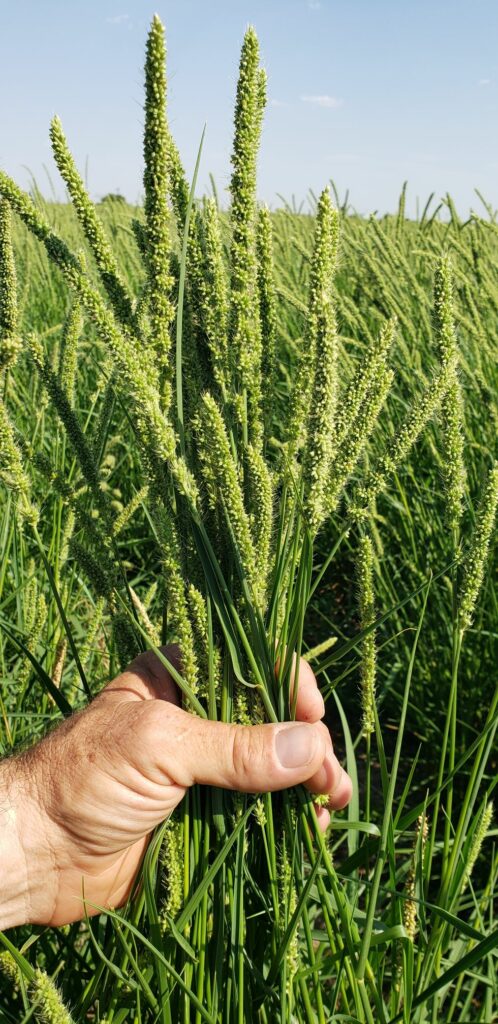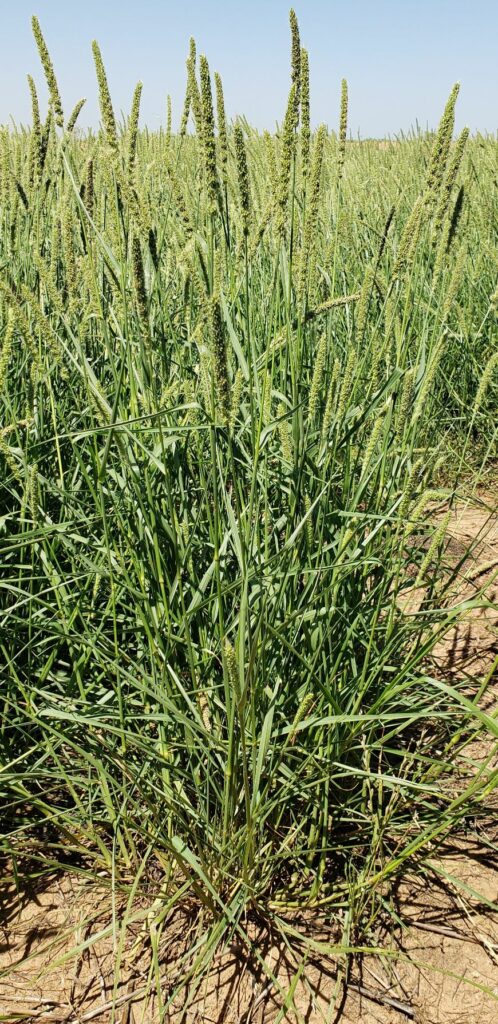Plains Bristlegrass
(Setaria macrostachya)
Plains Bristlegrass is a native, warm season, perennial bunchgrass, adapted to sandy to medium-textured soils. It is prevalent mostly in the Southern part of New Mexico, Texas, and Western Oklahoma. It is usually associated with mesquite, gravelly sites and disturbed sandy areas.
Plains Bristlegrass is highly palatable to all classes of livestock when it is green. Seed provides a valuable food source for game birds. It is recommended for grazing, wildlife plantings, land reclamation and soil erosion.
Growth begins mid-spring and continues through the summer. Plants usually grow 1 to 2.5 feet tall. The blades are about 1/4 – ½ inches wide and approximately 4 to 8 inches long. The leaves flattened at the base and are green until the plants reach maturity. Its spike type seed head easily identifies the plant.
Because of its drought tolerance, Plains Bristlegrass is highly adapted to the dryer climates. It is not a dominating species on most range sites. It is best-planted in seed or range mixes for revegetation of rangeland or abandoned cultivated land. Seedings should be made on well-prepared, firm seedbed free from weeds. A seeding rate of 1 – 4 pls. Lbs. per acre depending on the amount utilized in seed mixture.


General Characteristics
| Growth Type: | Bunch |
| Life Span: | Perennial |
| Growing Season: | Warm Season |
| Native/Introduced: | Native |
| Plant Height: | 1-2.5 feet |
| Cold Tolerance: | Good |
| Drought Tolerance: | Good |
| Salt Tolerance: | Poor |
| Soil Type: | Widely Adapted |
| Minimum Rainfall: | 12 inches |
| Planting Rate: | 1-4 pls# |
| Planting Date: | Dec. - June |
| Seed Type: | Slightly Chaffy |
| Uses: | Grazing, Wildlife Habitat, Erosion Control, Reclamation |
